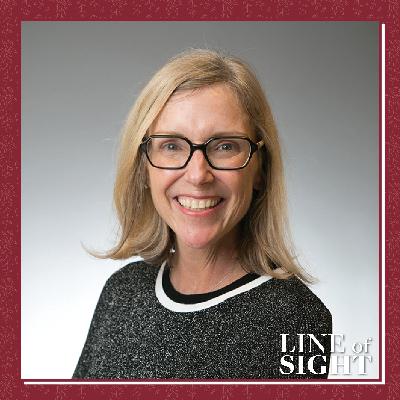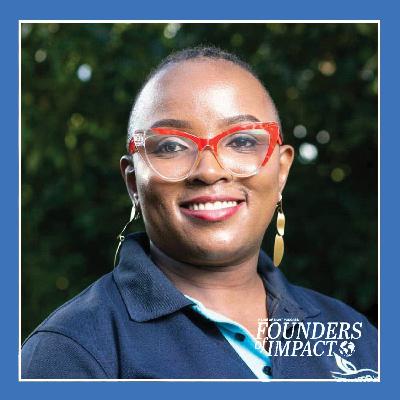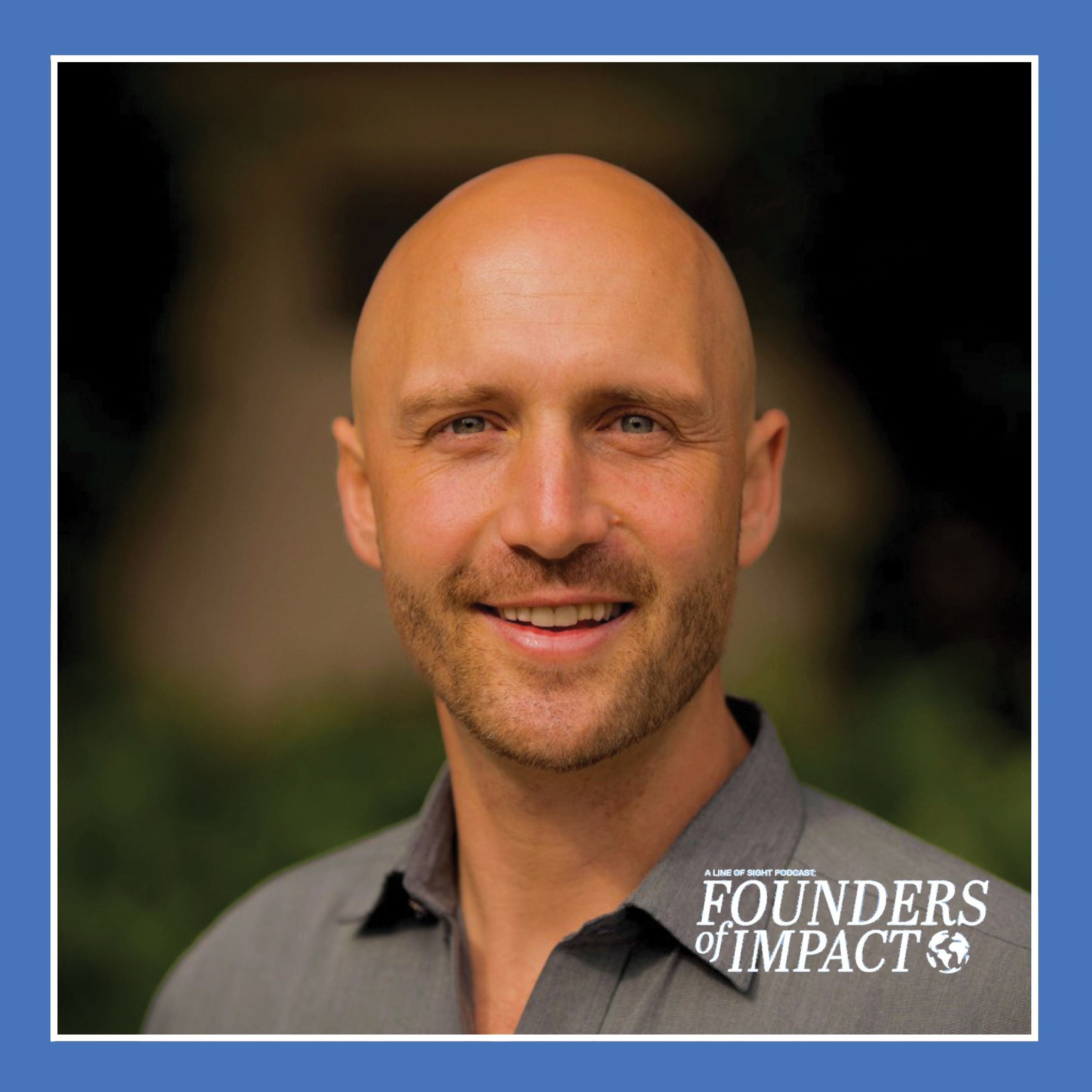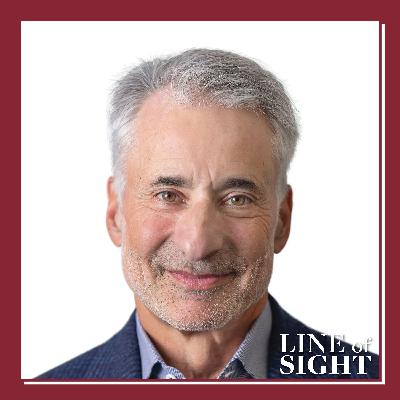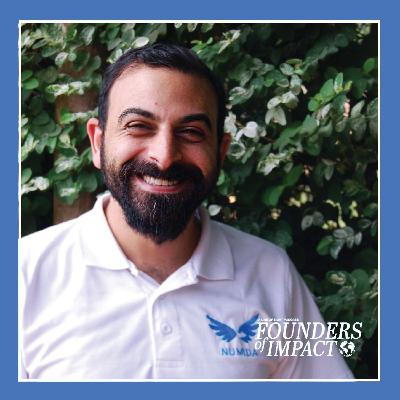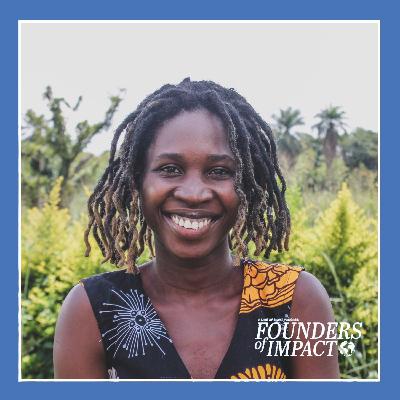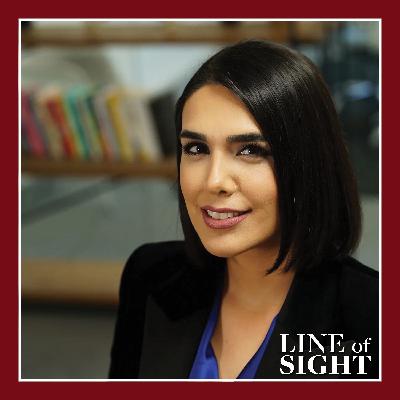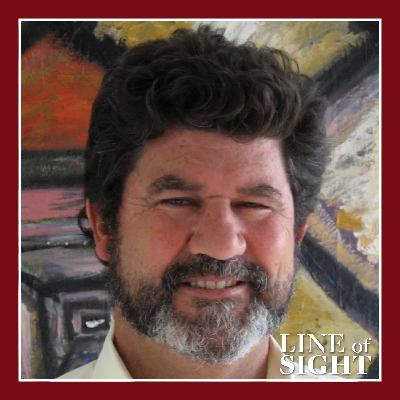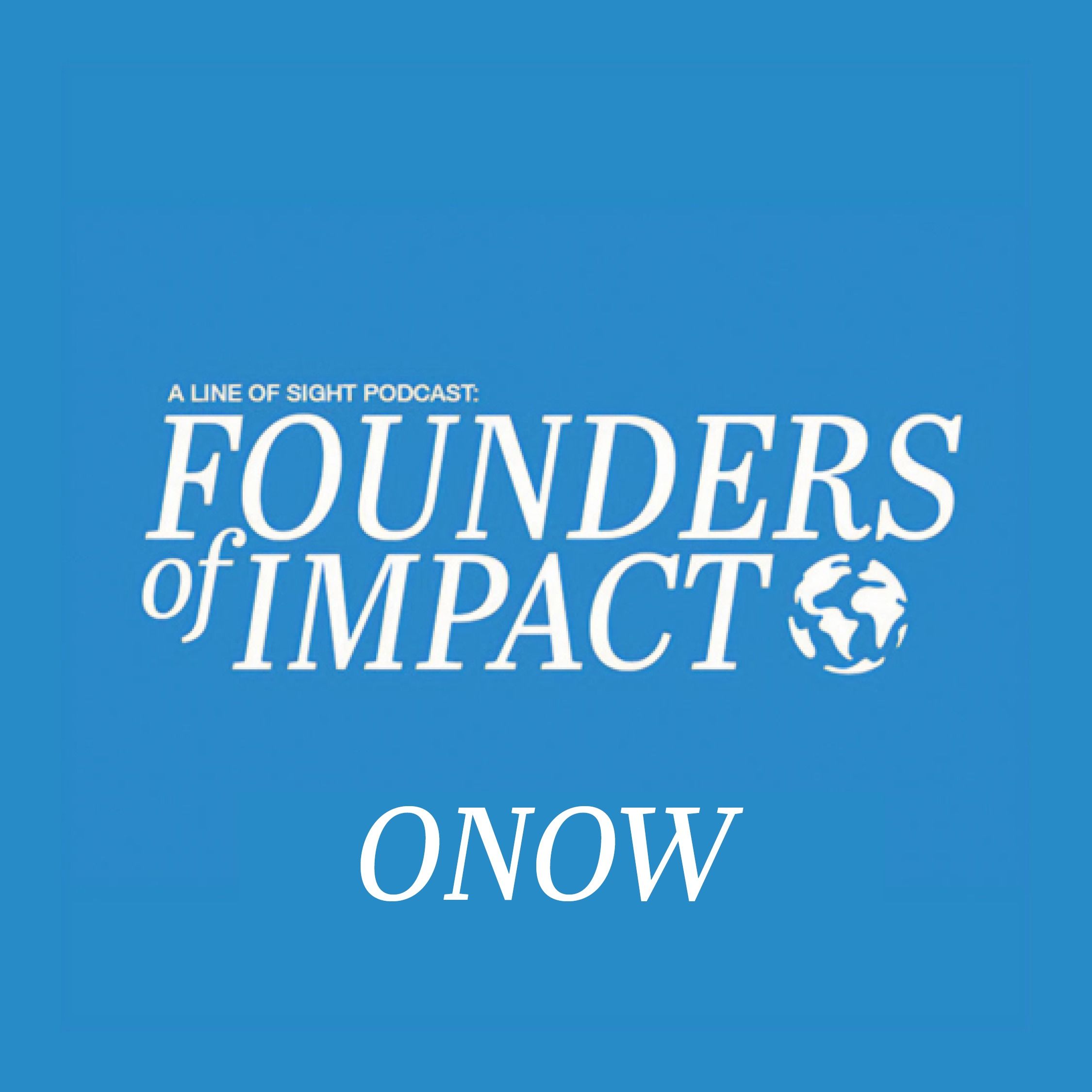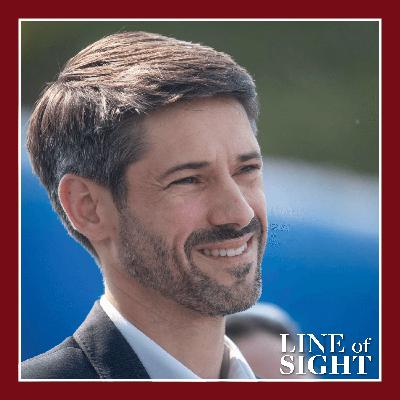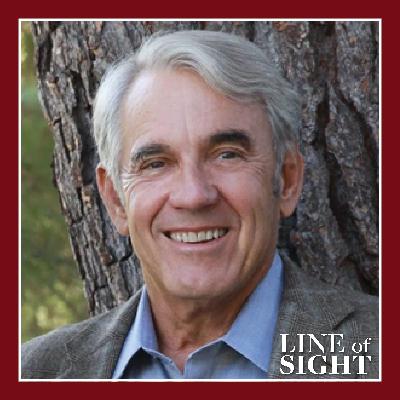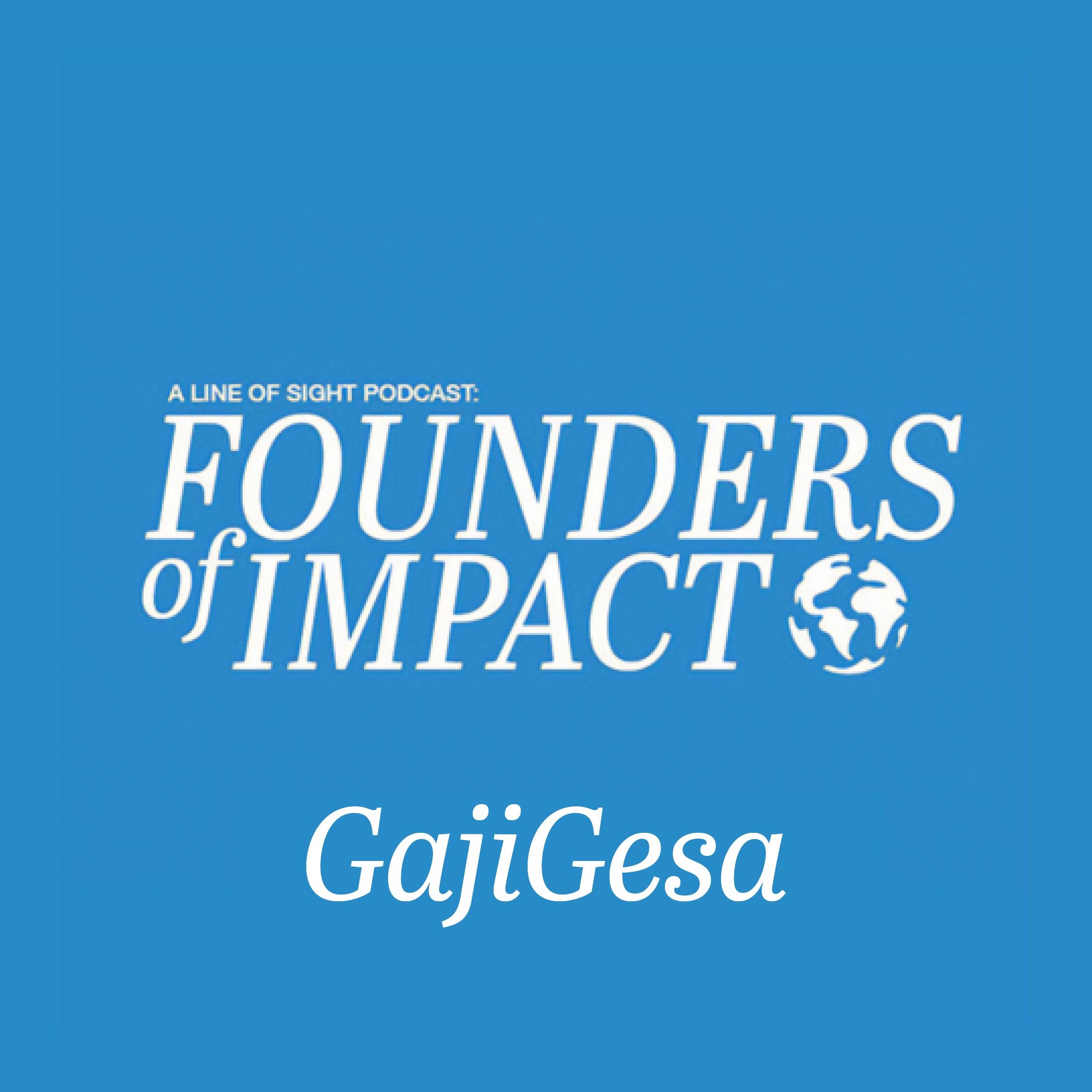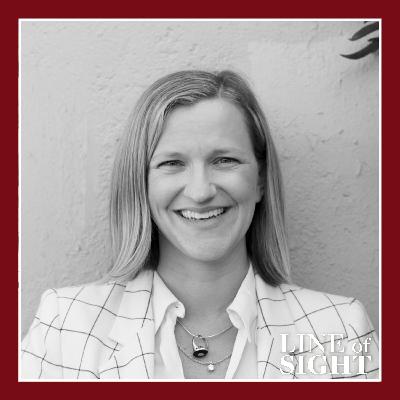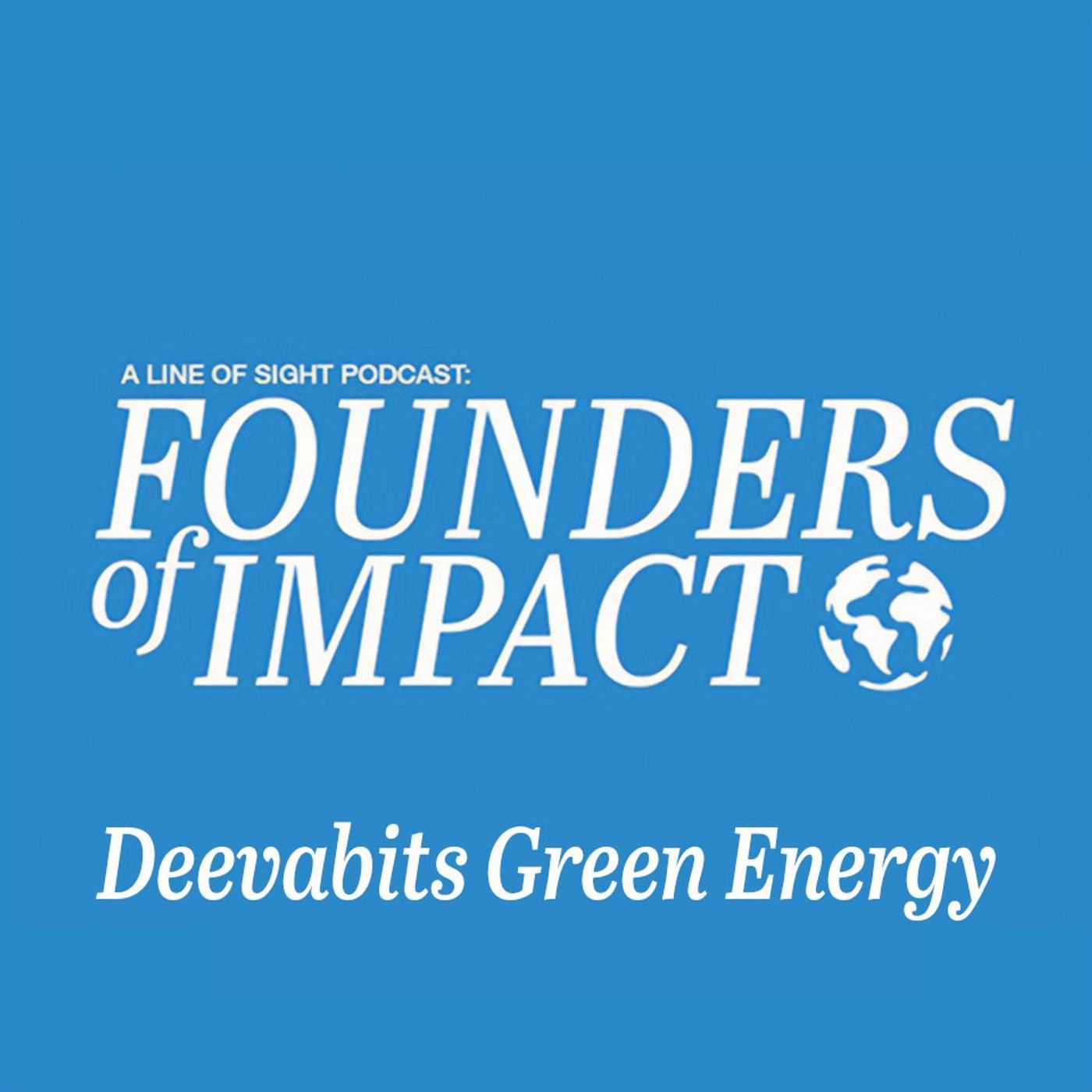Discover Line of Sight Podcast
Line of Sight Podcast

Line of Sight Podcast
Author: Don Heider PhD, Brigit Helms PhD
Subscribed: 5Played: 132Subscribe
Share
Description
In the heart of Silicon Valley, idea to market happens at light speed. But at what cost? The answer isn’t always obvious and often leads to unintended consequences, both locally and globally. On the flip side, innovative ideas, policies, and technologies are being advanced to bring about a more just, ethical, and sustainable world.
Line of Sight presents a unique view of innovation by bringing technologists, entrepreneurs, and visionaries into provocative conversations with two of the world’s top thought leaders in the fields of social justice and ethics, Santa Clara University’s Brigit Helms and Don Heider. Whether you are interested in Silicon Valley ideation, global changemakers, movers and shakers, or thought leadership from the region’s first incubator of ideas, this is the podcast for you.
Line of Sight presents a unique view of innovation by bringing technologists, entrepreneurs, and visionaries into provocative conversations with two of the world’s top thought leaders in the fields of social justice and ethics, Santa Clara University’s Brigit Helms and Don Heider. Whether you are interested in Silicon Valley ideation, global changemakers, movers and shakers, or thought leadership from the region’s first incubator of ideas, this is the podcast for you.
74 Episodes
Reverse
Julie Schaefer, founder and CEO of Winning Presence, has spent over two decades helping leaders and organizations unlock performance through communication. In this episode, she shares her signature approach, “strategy through storytelling,” and explains why purpose-based leadership is more than a mission statement—it’s a compass for decision-making, culture, and crisis response. Drawing on her corporate experience and work with executives worldwide, Julie offers insights on building authenticity, engaging employees, and turning values into actions. Tune in to learn how leaders can develop a “winning presence” that inspires trust, drives results, and leaves a lasting impact.
In this episode, we explore the power of transforming organic waste into renewable energy with Madrin Maina, the Africa Director of Sistema.bio, a social enterprise that is creating opportunities through its patented biodigester technology. Madrin shares her journey as an entrepreneur — what inspired her path, the challenges she’s faced, and how her leadership is helping families and farmers save money, reclaim time, and improve their quality of life. Along the way, we explore the ripple effects of clean energy: healthier communities, stronger local economies, and a more sustainable planet.
In this episode, we sit down with Nathalie to explore her journey as a social entrepreneur blending culture, community, and commerce. Nathalie shares how LIKHA began, the lessons she’s learned leading a mission-driven business, and the power of storytelling and craftsmanship in driving impact. From the early challenges to building a global brand rooted in Filipino heritage, this conversation offers an honest, inspiring look at what it means to build with purpose.
Welcome to "Founders of Impact," our Line of Sight spin-off series that delves into the remarkable journeys of founders who are redefining success by combining business innovation with a commitment to positive societal change. In each episode, host Karen Runde, Miller Center's Senior Director of Academics & Entrepreneur Network, engages in candid and insightful conversations with visionaries who have dared to challenge the status quo. Discover the origins of their enterprise, strategies, challenges, and triumphs that shape the landscape of social entrepreneurship.
How can maps help solve the world’s toughest challenges? Pulitzer Prize-winning journalist David Yarnold shares stories from his new book, The Geography of Hope, revealing how Geographic Information Systems (GIS) fuel collaboration and optimism worldwide. From women de-miners in Sri Lanka building livelihoods and status, to African conservationists balancing development and biodiversity, to city planners in Prague tackling urban sustainability, Yarnold shows how data and visual storytelling create common ground across cultures. He also reflects on career shifts, the power of showing vs. telling, and why every organization needs better storytellers. A compelling look at where technology, social justice, and hope intersect.
In this episode, we feature Mina Shahid, CEO and co-founder of Numida, a leading digital microfinance institution (MFI) in East Africa. Mina shares his personal journey, from his early experiences that shaped his passion for financial inclusion to the founding of Numida. Born out of a mission to empower micro- and small businesses (MSBs), Numida leverages proprietary technology and innovative credit processes to deliver convenient, unsecured working capital to entrepreneurs often left out of traditional financial systems. Tune in to hear how Mina’s vision and leadership are driving real impact across the region—improving livelihoods while building a thriving, scalable business.
In this episode, Susan Namirimu shares how her passion for sewing became a catalyst for economic empowerment in Northern Uganda. Originally from Kampala, Susan moved to Gulu for university, where she saw firsthand the lack of job opportunities for young people. Determined to make a difference, she founded Mtindo, a training academy that equips vulnerable women—many of them young mothers—with fashion entrepreneurship skills. Beyond sewing, Mtindo provides life skills training, fostering confidence and self-advocacy. Graduates either secure jobs within Mtindo or launch their own tailoring businesses, building a future of financial independence. Tune in to hear how Susan is transforming lives, one stitch at a time.
Andrei Iancu — Founder & CEO of Halo Industries
Growing up in Communist Romania and earning a bachelor’s in aerospace, aeronautical, and astronautical engineering at Iowa State University, Andrei Iancu had no concept of entrepreneurship. That all changed at Stanford, where he earned a PhD in mechanical engineering and became inspired to start a company and make a meaningful impact on the world. Drawing on his work in a Stanford research lab, he founded Halo Industries, which creates novel laser-based systems for materials fabrication to help manufacturers drastically reduce waste, improve quality, and enable next-generation technologies. And if that’s not enough, his next big thing may be addressing gaps in childcare and early childhood education.
With a degree in mechanical engineering, Wes joined the Peace Corps in Nicaragua, seeking to learn Spanish and make a difference. He shares his journey from a Midwestern farming family to cofounding Cova, a social enterprise providing safe water solutions in Nicaragua, Honduras, and El Salvador. Named for the covalent bond between hydrogen and oxygen that creates water and the bond they foster with rural communities, Cova evolved from a product company to one offering water treatment as a service. Wes also discusses leadership, balancing work and family, exploring carbon offsets, and expanding into new countries to grow impact and manage risks in the face of political instability.
At just 19, Falon Fatemi became one of Google’s youngest employees, joining shortly after the company went public. She recalls a time when wearing a Google tee in London prompted the question, “What’s Google?” A decade later, she founded Node, the first horizontal AI-as-a-service platform driving predictable business outcomes, which was later acquired by SugarCRM. Today, she’s cofounder of Fireside, alongside Mark Cuban, a venture named by Fast Company as one of the “next big things in media, entertainment, and social technology” for its innovative interactive tech on smart TVs. In this episode, Falon shares her entrepreneurial journey and offers valuable advice for aspiring founders.
With a career in corporate finance, Florence originally founded Nyota as a way to continue employing her nannies once her children started school. The company partners with smallholder farmers in rural Kenya to flash-freeze local produce and create specialty sauces, tackling food waste and boosting farmers’ livelihoods. Nyota soon began employing more women in the community and moved production from Flo’s kitchen into a commercial facility. In this episode, discover Florence’s inspiring journey, including how she has evolved her previous no-nonsense, corporate leadership style to embrace patience, empathy, and camaraderie. Nyota’s nutritious foods are sold in supermarkets across Kenya, with expansion plans for New York City.
Founded in 2003, Next 10 works at the intersection of California’s economy, environment, and quality of life, providing expert research and data to inform the public and policymakers. Noel explores the hidden energy costs of driverless cars, the development of offshore wind farms, and how to navigate California’s complex ballot propositions. Discover insights from Next 10’s annual California Green Innovation Index, which tracks environmental and economic trends, benchmarking California against other U.S. states and major global economies. This conversation offers valuable lessons not just for Californians, but for anyone interested in learning from the state’s successes and challenges.
For many vulnerable communities, particularly women and children, in Sub-Saharan Africa and beyond, access to school and the news can be difficult. Hear how Lifeline Energy is bringing news and educational curriculum to rural communities with solar and wind-up radios and MP3 players, often providing the only reliable source of outside information to their clients. Kristine shares her story of winning the 2005 Tech Award (co-sponsored by the Tech Museum of Innovation and Miller Center). The $50,000 prize was pivotal in helping her raise additional capital because donors like to be first to go second.
After college, Matt Wallace sought life beyond the Illinois cornfields where he grew up. He moved with his wife to Myanmar to teach English, where he was struck by the influx of young women migrating into cities to send money back to their families. This inspired him to co-found ONOW, which provides business training, financial skills, coaching, and digital tools to Myanmar’s young entrepreneurs, especially migrant women. Discover Matt’s journey with ONOW — how the pandemic actually helped the company scale, the impact of Myanmar’s military coup, and how ONOW is integrating AI into its support tools to simplify financial reporting for its customers.
Mayor Matt Mahan shares his vision for San Jose, tackling some of the most pressing issues the city faces today — from the housing crisis and public safety to innovation and community-building. Raised in a small farming town by a school teacher and a postal carrier, Matt commuted up to four hours a day to attend a college prep high school in San Jose. A Teach for America educator and founder and CEO of a tech startup to engage voters, he was elected mayor of the United States’ 13th largest city in 2022. Whether you're a resident or interested in urban leadership, this episode offers insights into San Jose’s future.
Sahar Jamal, the founder of Maziwa, discusses the inspirations behind creating the Maziwa "Wema Breast Pump," her experience with Miller Center's accelerator program, and her upbringing.
From Summer Camp to Tech-Giant CEO to Nonprofit Advisor
When Jim Morgan took the reins at Applied Materials, the semiconductor equipment company was on the verge of bankruptcy. During his three-decade tenure, he led its transformation into a multi-billion dollar corporation. Jim has also served as a technology advisor to three US presidents, been recognized for his global humanitarian work, and authored several books on leadership. And it all began at summer camp. Join us as Jim shares his journey and his latest book, Applied Wisdom for the Nonprofit Sector.
Martyna Malinowska, co-founder of GajiGesa, shares her journey from Poland to Indonesia, driven by a passion for financial inclusion. She was first inspired by Muhammad Yunus' concept of doing well by doing good. Working for a fintech startup in Indonesia, Martyna came to understand that most Indonesian employees run out of money between paychecks. This experience led to the creation of GajiGesa, a platform that provides on-demand access to earned wages as a safe alternative to high-interest, predatory loans and improves the financial resilience of workers.
Page Crahan is general manager of Tapestry, a moonshot effort under Alphabet focused on the electric grid. Today, information about the grid is fragmented across numerous organizations, making planning and management difficult. Tapestry’s mission is to illuminate the electric grid. By providing visibility to all those who work with it, Tapestry aims to make the grid greener, fairer, and more reliable. Page shares some exciting developments on the horizon and how she brings her personal creativity to work.
David Wanjau, founder and CEO of Deevabits Green Energy, planned to be a research scientist before being encouraged by a fellow scientist to help “change the world.” Working for an NGO on food security issues and rabbit farming, he quickly realized that the farmers he worked with did not have electricity. Our host, Karen Runde, met up with David in Nairobi to learn more about his journey with Deevabits to provide clean, reliable solar solutions to rural Kenyan communities.


